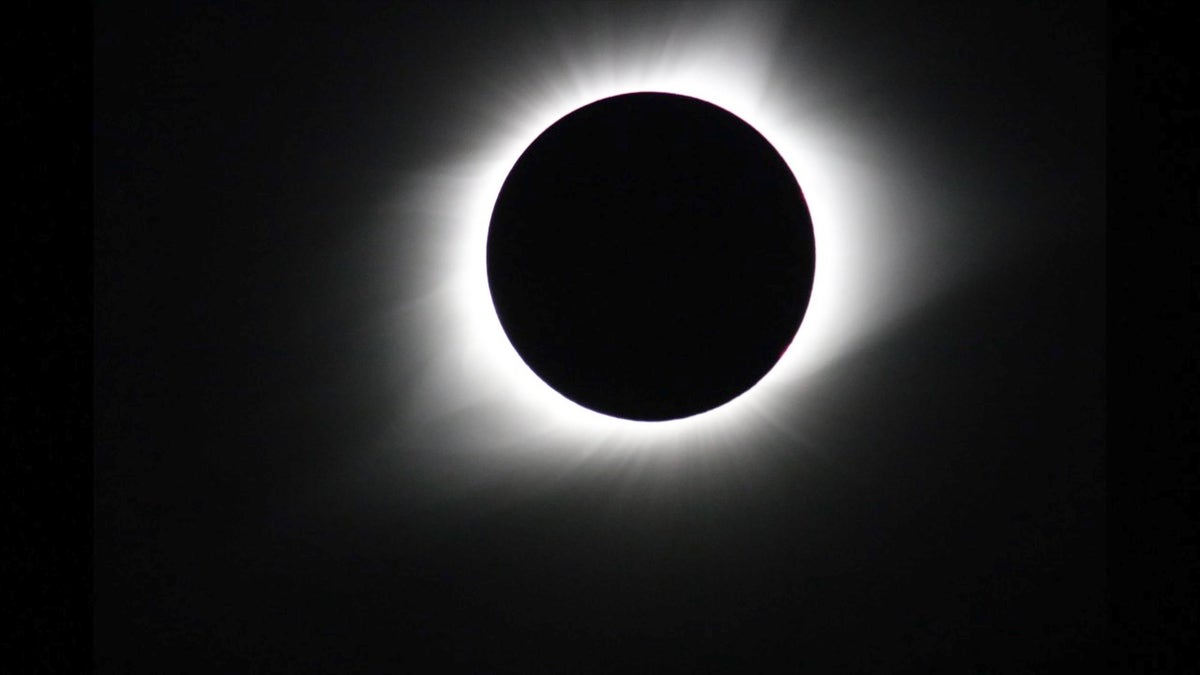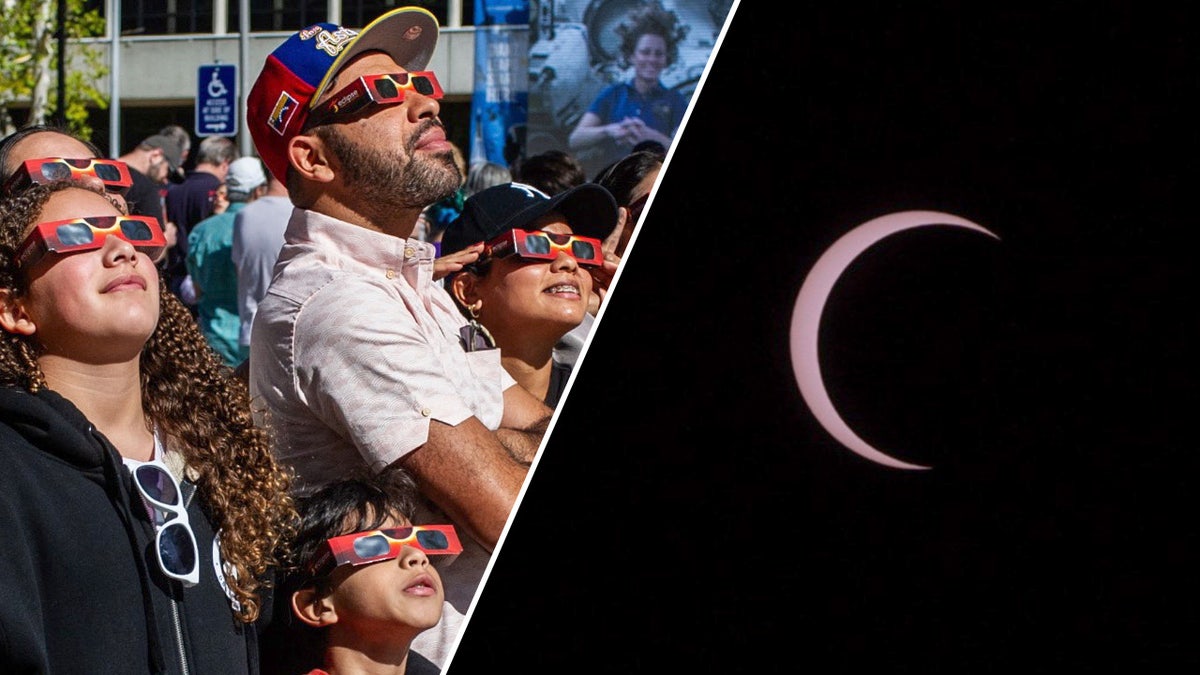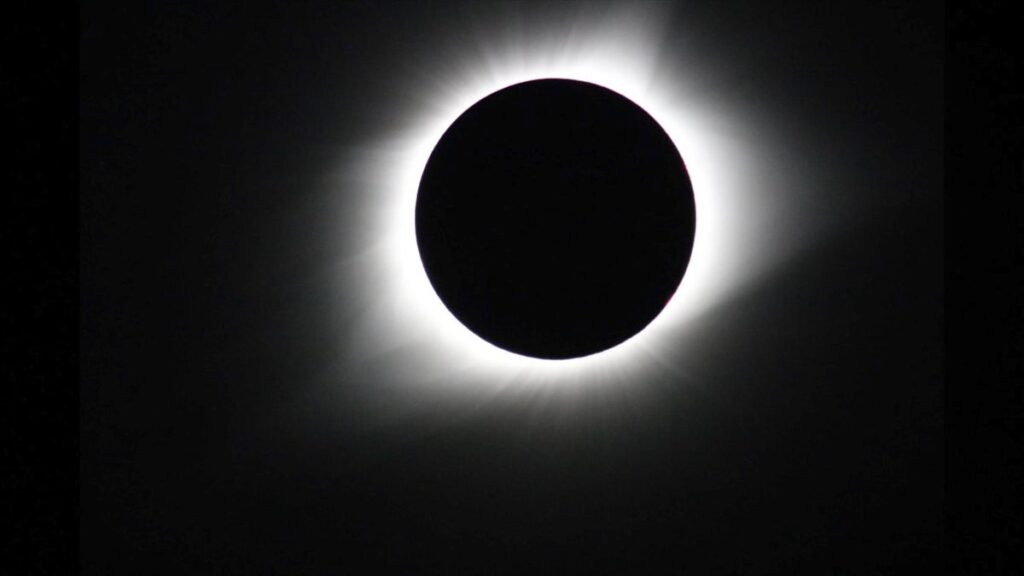[ad_1]
NASA plans to launch three research rockets to analyze a rare space marvel that could collect crucial information.
The Atmospheric Perturbations around Eclipse Path (APEP) rockets will launch April 8 from the Wallops Flight Facility in Virginia to study how the total solar eclipse impacts the Earth’s upper atmosphere, NASA announced Monday. After next month’s, there won’t be another total solar eclipse over the contiguous U.S. until 2044, making it a potentially pivotal moment for gathering “crucial” data, the agency said.
“We are super excited to relaunch them during the total eclipse, to see if the perturbations start at the same altitude and if their magnitude and scale remain the same,” said Aroh Barjatya, the principal investigator of the April mission.

A view of the Aug. 21, 2017, total solar eclipse from Madras, Oregon. (NASA/Gopalswamy)
HOW NASA JUST MADE HISTORY USING A CAT VIDEO
Each rocket will blast off in 45-minute intervals before, during and after the peak eclipse to gather data on how the Sun’s momentary disappearance impacts Earth’s ionosphere, a region stretching approximately 55 to 310 miles above Earth’s surface, NASA said. The short-lived phenomenon triggers atmospheric waves, creating small disturbances that interfere with communications.
“It’s an electrified region that reflects and refracts radio signals, and also impacts satellite communications as the signals pass through,” Barjatya said. “Understanding the ionosphere and developing models to help us predict disturbances is crucial to making sure our increasingly communication-dependent world operates smoothly.”

NASA will launch three sounding rockets from its Wallops Flight Facility during the April 8 total solar eclipse. A team of investigators will analyze the data collected and how the eclipse impacts Earth’s upper atmosphere. (Berit Bland/NASA via AP)
HOW NASA IS OFFERING TO PUT YOU ON THE MOON IN JUST MONTHS
Each rocket is expected to reach a maximum altitude of 260 miles and will eject four instruments to study the solar eclipse, according to NASA.
“It’s similar to results from 15 rockets, while only launching three,” Barjatya said.

Americans view the solar eclipse in October 2023 from Houston, Texas. (Getty Images)
CLICK HERE TO GET THE FOX NEWS APP
Several additional investigations will be conducted during the eclipse, one of which will include deploying high-altitude balloons, according to NASA. The agency hopes to compare data from the investigations to establish a bigger picture of the eclipse.
The three rockets previously launched in October 2023 to analyze the annular solar eclipse, NASA said. They were recovered in New Mexico and have since been restored and updated for next month’s launch.
NASA will broadcast the total solar eclipse on April 8 and feature livestream videos of the rocket launches from Wallops’ YouTube page. The public can also attend a live viewing in Virginia.
[ad_2]
Source link







